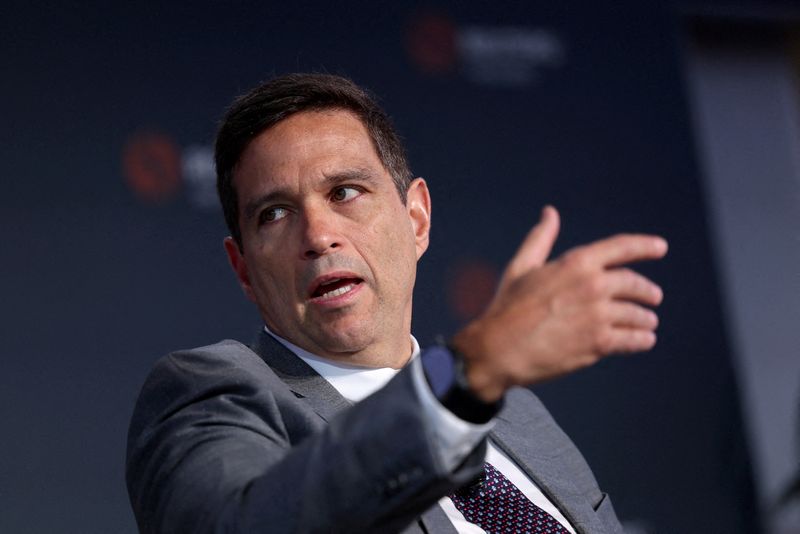LISBON/BRASILIA (Reuters) -Brazilian central bank chief Roberto Campos Neto said on Friday that investors' lack of confidence in the government's ability to improve public accounts impacts long-term interest rates and inflation expectations, and that market prices are important because they indicate where the problem lies.
Campos Neto made his comments amid a new round of weakening of the Brazilian real (BRBY) against the U.S. dollar and sharp rises in interest rate futures due to fiscal worries and comments by leftist President Luiz Inacio Lula da Silva.
Speaking at another event, monetary policy director Gabriel Galipolo acknowledged that the currency has depreciated rapidly, diverging from its peers.
Campos Neto, speaking at the Lisbon Legal Forum, said that fiscal adjustments made exclusively on the revenue side end up disrupting long-established tax relationships, creating legal uncertainty.
Galipolo, seen as a front-runner to succeed Campos Neto once his term ends in December, noted that the fiscal adjustment process is not always as quick or linear as desired, but pondered that is part of democracy.
Speaking to university students at an event in Brazil, he said the central bank needs to assess how much of the deterioration in the real compared with its peers represents an additional concern.
"We are always looking at how the pass through to current inflation and expectations occurs," he said.
Lula's administration has emphasized it will seek to balance public accounts by increasing revenue and eliminating undue tax advantages.
More recently, Lula started acknowledging the need for spending cuts when excesses are identified, while ruling out structural adjustments to the policy of raising pension benefits and the minimum wage.
Campos Neto also stressed the importance of anchoring inflation expectations to the government's target for consumer prices, calling them a "fundamental" variable.
These expectations in Brazil have been diverging from the 3% inflation target, a key factor cited by the central bank for its decision to halt its easing cycle last week and maintain the benchmark interest rate at 10.5%.
Campos Neto said he was not making specific considerations about Brazil but rather providing an analysis of post-pandemic economic dynamics.

Earlier on Friday, Lula again criticized the high level of interest rates amid inflation of around 4% and directly targeted Campos Neto, urging the central bank to act on recent currency movements.
"Why is the dollar rising? Because there is speculation with derivatives aiming to appreciate the dollar and depreciate the real. And the central bank has the obligation to investigate this," Lula said in an interview with a local radio station.